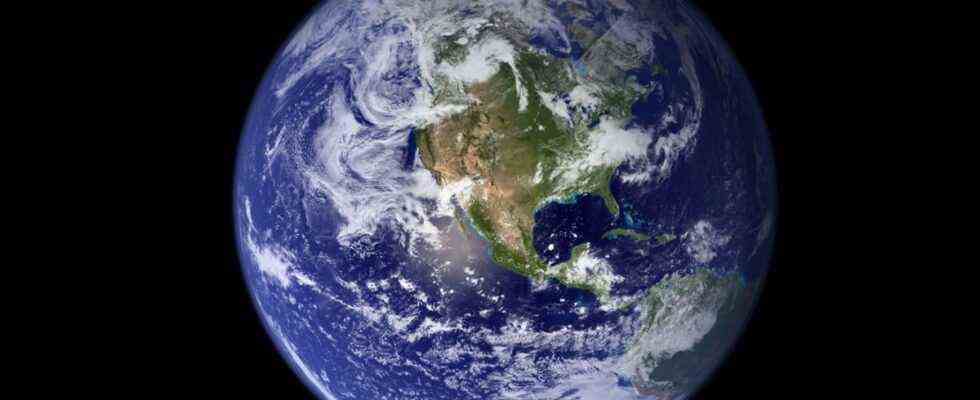Self-centeredness and blindness to the consequences of their actions have driven mankind to the brink of “its own extinction” – and numerous living beings with it. This diagnosis and warning was last heard from the highest authorities at the World Climate Conference in Glasgow. Patricia Espinosa, Secretary General of the United Nations Framework Convention on Climate Change, said it there at the beginning. This realization is of course just as little new as the insight that we need a fundamental cultural change and that we cannot simply continue the ideologies of exploitation and growth with more efficient technology.
However, the paradigms of the necessary renewal have not yet been formulated. Which concrete “style of thinking” would an ethical lifestyle have to maintain in the 21st century? Political scientists Frederic Hanusch, Claus Leggewie and Erik Meyer address this question in their book “Thinking Planetary”. The title also gives the answer: We should “recognize the earth epistemologically, ontologically and ethically as a planet, so understand human (co) life through a constantly changing planet”. What does that mean? And does that bring us further?
After Copernicus had actually adopted geocentrism, nowadays we are grateful for every perspective that puts the planet in the center
The fact that the earth is a planet should – in epistemological and essential terms – remain unchallenged. Also that we inhabit them in an ethically inappropriate way. The reversal of the anthropocentric perspective is more interesting: Instead of defining and globalizing the earth according to the standard of our desires, we should understand human life in terms of its planetary basis of existence. After the cosmologies of Copernicus and Kepler had actually adopted the geocentric view of the world, today we are grateful for every change in the way of thinking that focuses on the planet itself and not on people.
For the authors, this means approaching the blue pearl in its entirety, ideally embodied in the famous recordings of the Apollo. This approach is inspired by the neologism “planetship”, which, following the example of the “landscape”, wants to point out “that regions of our planet are locally shaped but always planetary”. Accordingly, bringing the interactions “from the earth’s core to interplanetary space” to the attention of everyone is a major challenge.
The extension of the Gaia hypothesis from the earth as a living organism into space also means tremendous stretching exercises for the moral imagination. Nonetheless, it is original to a limited extent – as it is pointed out in the motto “Think like a planet”, which merely reformulates the ecological maxim “Think like a mountain” of the American environmental ethicist Aldo Leopold from 1949.
Instead of “planet centrism”, the authors want an “extended anthropology”
With all their focus on the planet, the authors do not want to replace anthropocentrism with a “planetocentrism”, “which regards human life as just one of many equal components of an ecosystem”. Her concern is not “the leveling of the distinction between the human and the non-human”, but rather “the determination and inclusion of the ‘more-than-human’ in an expanded anthropology”. Accordingly, they define so-called “planet-human relationships as the basic elements of planetary thinking”.
The two partners approach each other when the human being in metabolism with the earth also appears as a material being. On the other hand, living nature is moving somewhere close to human ability to act, at least proving “effectiveness”. The morally bankrupt human race has long since ceased to see itself as an autarkic ruler. It has to look for anchoring and embedding in nature. Their relativization follows from this. If the authors “relieve man of his special position without releasing him from his responsibility” as an intentional being, their impact may reach its peak.
Frederic Hanusch, Claus Leggewie, Erik Meyer: Thinking Planetary. An entry. transcript, Bielefeld 2021. 198 pages, 18 euros.
At the latest at the critical transition from planetary thinking to action, her theory leaves feathers: Rockström’s planetary load limits are briefly warmed up, followed by a discussion of geoengineering and colonization on Mars. What would be in between? Oh a little global governance.
As a gathering of different theories under a new paradigm, “Planetary Thinking” does a useful job. If implemented consistently, the thinking style would help alleviate the ecological imbalance of our planet. Although the book is designed as an introduction, more original work and elaboration could not have hurt. We need her so badly.

